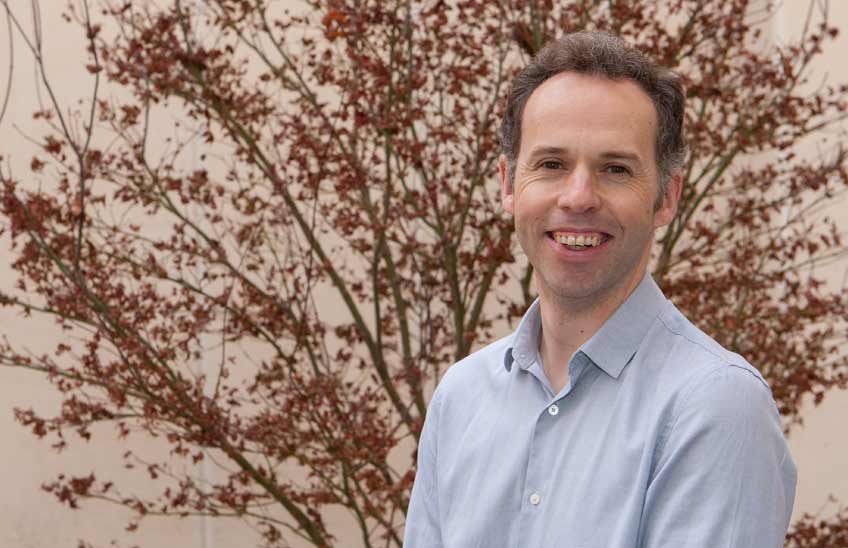"Artificial intelligence will never be able to perform jobs that require creativity or disruptive thinking."
Javier Bernácer, researcher of the University of Navarra and director scientist of the CINET of the Tatiana Foundation, has affirmed that "subjectivity is not computable" in the framework of the course 'Neuroscience, cognitive science and artificial intelligence'.

FotoManuel Castells/<br>Javier Bernácer
15 | 06 | 2021
"Artificial intelligence will never be able to perform jobs that require creativity or disruptive thinking because, unlike humans, it does not generate novelty or set different goals". This was stated by Javier Bernácer, researcher of the Institute for Culture and Society (ICS) of the University of Navarra and of the International Center for Neuroscience and Ethics (CINET) of the Tatiana Pérez de Guzmán el Bueno Foundation..
The expert is one of the speakers at the first intensive course organized on June 18,19, 25 and 26 by CINET, together with the ICS, under group Mind-Brain ICS, under the degree scroll 'Neuroscience, cognitive science and artificial intelligence'. Among other current issues, the program will address cutting-edge techniques for studying the human nervous system, the ethical and legal challenges of artificial intelligence and the latest discoveries on how artificial intelligence and human intelligence differ and resemble each other.
According to the expert, one of the keys is the distinction between habits, something exclusive to human beings, and routines. "The former are the basis of our abilities and allow us to do new things and grow," he said. "It is true that some algorithms learn, but only specific parameters - object or language recognition, among others - which they always develop in the same way."
The brain is not a computer: in search of a new metaphor
In this sense, he pointed out that, although explaining the mind and the brain as a computer is still a growing trend, "there are more and more voices discordant with this paradigm because it is exhausted. It is afad and, as such, it will pass". He stressed that "it is necessary to find a new metaphor to understand them because not everything can be translated into binary language. The subjective aspects are not computable".
As an example, he mentioned the case of vision: "The visual stimulus passes through the retina and the brain and is somehow encoded and decoded until we form an image. That process resembles computation. But the impression, the unitary perception that someone has of what they see cannot be translated into ones and zeros".
Javier Bernácer encouraged to be realistic about the future evolution of artificial intelligence, as opposed to "false promises" close to science fiction. "Some say that the human mind will end up merging with artificial intelligence. Others, that artificial intelligence will become conscious and will give rise to a new species". Against this, he said that development can be expected to come from the reduction in the size of computing units, new microchips and quantum computers.
In addition to Javier Bernácer, the course 'Neuroscience, cognitive science and artificial intelligence' will feature renowned experts such as Ramón López de Mántaras, director of high school of research Artificial Intelligence (IIIA-CSIC) and honorary member of the association European Artificial Intelligence (EurAI); Elisa Martín, director of the Health environment of the high school of Engineering of the knowledge (IIC); and José Ignacio Latorre, director of research of high school of Technology Innovation (Abu Dhabi), director of the Center for Quantum Technologies (Singapore) and Full Professor of Quantum Physics of the University of Barcelona, among others.
